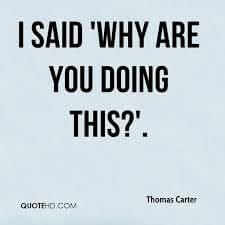Readings: Sirach 35:12–17, Psalm 84:1–7, 2 Timothy 4:6–8, 16–18, Luke 18:9–14
We don’t clap for homilies.
If you go most places other than a church – in fact, if you go to some churches, too – a person who gives a speech filled with information and insights will get applause at the end: polite at least, and thunderous if the speech is particularly inspirational. But for a homily? That would imply that the homilist was doing it for their own glory. It would acknowledge the signpost instead of the destination, the spotlight instead of the soloist. This is about god. Or for those principles that we hold in highest esteeem.
And anyway, no one likes someone who is too proud, too obviously pious. In matters spiritual we are to transcend ourselves. We want to do a good job, of course, and there is nothing wrong with feeling satisfied that we have done a good job, but the moment we place ourselves above others we’ve undone, at least within ourselves, what we were setting out to do.
Now, the truth is that we almost never do anything for just one reason. The more valuable ends we can accomplish at the same time, the better. Cook a nice meal and you provide nutrition as well as enjoyment and you get a sense of satisfaction – and you may also show off how much you can afford (or, conversely, how frugal you are), and maybe finally find a use for that jar of pickled lemons you bought a while ago, and solidify your relationship with whoever you cooked for, and…
Even just having a conversation with a friend, you’re not just exchanging information; you’re solidifying and constantly negotiating a relationship, with its attendant statuses and likes and dislikes, and you’re finding out about things that entertain you or that may help you play a role with others – now you are the receiver of information, perhaps what you learn will help you be the wise giver of information with the next person…
There is no “just saying,” after all. You’re always trying to produce some effect. If you say “I’m just saying,” that means you acknowledge that you have no right to expect the other person to act on your wishes… but of course you still want them to. Otherwise you just wouldn’t say it.
So we can see clearly enough that people who exalt themselves and emphasize their sanctity are getting something from it that is more and other than the simple act of worship. Likewise, someone who puts their name all over charitable donations is, in our view, giving the lie to the self-transcendence: they don’t want the fruit of their efforts all to go to the other person, they want some kudos. We tend not to like that. In other cultural contexts it might be seen as setting a good example for others. In ours, it suggests that their interests are at least in part for themselves, which we don’t think of as the right example.
We can sometimes be quite vigorous in calling out hypocrisy and unfairness. When we see people who on the one hand vote to criminalize abortion because they declare that they respect life, but on the other hand vote against funding for social services, so that children once born – and their parents – have much harder lives while those who have more than enough hoard their wealth, we naturally want to point it out. When the “war on drugs” results in no less drug use but a massive pipeline of poor people into prisons to enrich a few, we naturally want to do what we can to fix that. When ad campaigns and sports logos use racist stereotypes, we want to exert what pressure we can to see that fixed.
I’m on Twitter a lot. Twitter is a great place to go if you want to see people calling our wrongdoing. Boy, lemme tell ya, if you want a good argument to fight the good fight, Twitter is the place. Faults are very readily pointed out and immediate correction suggested. And people who are odious are roundly condemned. Even people who are generally on the right path but make use of a stereotype, or thoughtlessly use a casual slur, will get instant correction.
And, boy, it can be great to call someone out. To shut someone down. You’ve struck a blow for justice and fairness. And that adrenaline gets pumping. Doesn’t it feel good?
[meaningful pause]
But does it change the other person’s mind? Is it the most effective way to achieve your ends? Sometimes it is. Being nice only gets you so far. When inequalities are so entrenched that most people think they’re reasonable, the people who disrupt them will seem unreasonable. But sometimes, your reward isn’t changing other people’s minds. It’s just a lively argument that makes you feel good about fighting the good fight. It may alienate someone who was generally on your side, or cause a person on the opposite side to harden their position, but you raised the flaming banner of righteousness! But if you’re not actually changing anything, why are you doing this?
I recently read an excellent article about Derek Black, a young man whose father is a leading white nationalist in the US. Derek grew up to be an important voice in the white nationalist movement, heir apparent to his father’s leadership role, a good friend of David Duke of the KKK. But when he went to college, he went to a fairly liberal college. He kept his white nationalism under his hat so that he wouldn’t be ostracized. But eventually his writings and radio shows were outed to the campus community. Responses were quick and understandable. Many students were very angry with him and had very strong corrective things to say to him, directly or – more often – just through the indirect medium of public denunciation. Derek Black was right, after all: being known as a white nationalist was a sure way to be ostracized.
But some of the students who knew him thought that just ostracizing him wouldn’t produce the best results. One of these was an Orthodox Jewish student who had Shabbat dinners at his apartment every Friday. He always invited a bunch of friends, most of whom weren’t Jewish. He decided to invite Derek Black. Derek Black, who had always been polite to him, but Derek Black, who had written online that Jews were not white and would have to leave the US. Derek came, and he kept coming. Conversations avoided the elephant in the room for a long time and just strengthened the social bonds. Gradually questions were asked. He clarified his views. Then modified them. And as he studied more and more history, he came to find that his views had not been quite well founded. As he came to learn more and to know other students from diverse backgrounds and to understand and respect them, he eventually modified his views so much they… really weren’t white nationalist at all. Finally, in his own time and his own way, he admitted and declared publicly that he wasn’t a white nationalist at all anymore. And that he was sorry for the harm he had done.
White nationalist views – and other similarly harmful lines of thought – have to be opposed. They have to be pointed out. We can’t let people feel that they can hold them comfortably and just get along. But on the other hand, it doesn’t help if we just shout at them and make them dig in while we feel good about ourselves.
Not everybody’s mind is going to change, admittedly. In my younger years I got into a lot of arguments with people who were offensively wrong about things, and I couldn’t understand how they could fail to acknowledge obvious, clearly spelled out facts but would just shift the subject, mischaracterize others’ positions, be abusive. Finally I realized that some people don’t want to actually be right, they just want to be seen as right. To win. They just want to fight and win. When dealing with such people, first make sure you’re not one of them too. And then… cut your losses, walk away, stop trying to convince them, just work to defeat them instead. But, on the other hand, some people who seem like that actually can be engaged. Some immature, abusive, and oblivious people can grow up. Maybe they won’t change their minds right away, but, over time, they very well may. And maybe you’ll learn something too.
But whether we’re working to oppose and undo them, or to welcome them and sway them through openness, we have to keep our eyes on the task at hand. And ask ourselves, why are we doing this? What effect are we trying to produce, and how? If we do something good, of course we’re going to feel good about having done it. But if we’re about to do something that will really only achieve making us feel like we’ve fought the good fight, without actually changing anyone’s mind, well, we get our reward – that feeling of righteousness – but we could have had something better.






